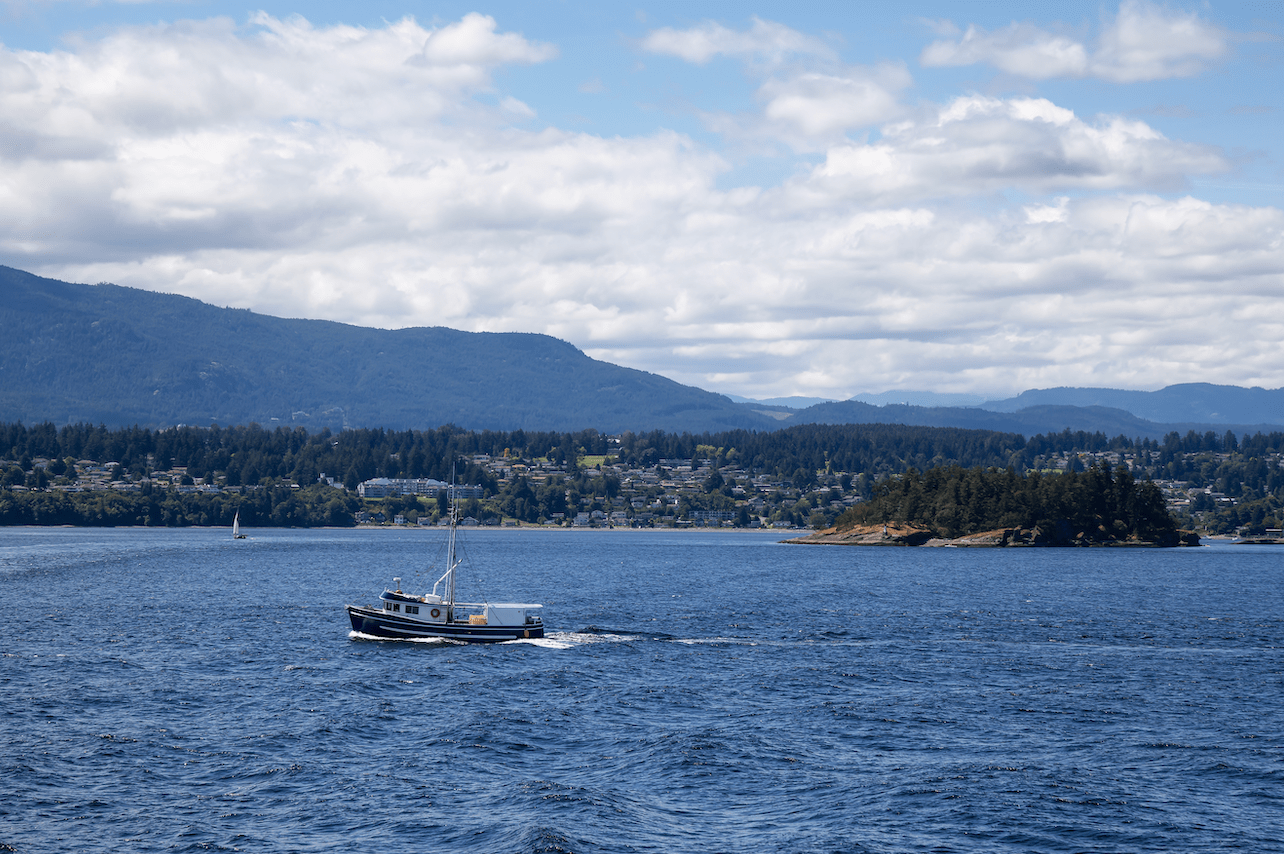
BRIAN KINGZETT
CAMPBELL RIVER – The Minister of Fisheries, Oceans and the Canadian Coast Guard (DFO), Joyce Murray, announced her commitment to the closure of all farms in the core territories of the Laich-kwil-tach and Klahoose First Nations – a region DFO calls the Discovery Islands.
We know that anti-salmon farming campaigners were given an early signal that a decision would be given, before impacted First Nations or industry.
“The Federal government continues to demonstrate a lack of care for rural coastal communities and continues to put the interests of activists above the people who grow Canada’s food. It is unacceptable that activist groups had advance notice, before licence holders and community leaders,” says Brian Kingzett, Executive Director of the BC Salmon Farmers Association.
“The decision to not issue salmon farms in the Discovery Islands area is devastating for all coastal communities who rely on the aquaculture sector. Local communities have been hurting since the decision to remove the farms was announced in 2020, and thanks to this willfully uninformed decision announced earlier today, these communities will continue to experience negative socio-economic impacts of an outcome that was based on politics rather than science,” added Kingzett.
This decision is short-sighted as the permanent removal of these farms will have devastating impacts to rural coastal communities who rely on the industry, but also to the broader BC and Canada as salmon farming is BC’s largest agricultural export. The announcement comes at a time when the country is experiencing record high grocery costs and is marching towards recession. Further loss of jobs and economic opportunity, partnered with a dramatic reduction in available farmed salmon for consumers, will have far-reaching negative financial implications.
“The irresponsible decision to deny these licences will have destructive impacts on our employees, First Nations whose territories we operate in, and the future of our sector in this province. As a sector, we saw the elimination of nearly a quarter of our farms in a single announcement. This resulted in companies laying off hundreds of employees from well-paid careers – in a region of Canada that is struggling to attract and retain its youth,” says Diane Morrison, Chair of the BC Salmon Farmers Association and Managing Director of Mowi Canada West. “The Federal Government has turned their backs on coastal communities.”
On December 17, 2020, former DFO Minister Bernadette Jordan ordered all salmon farms in what DFO called the Discovery Islands to be removed by June 30, 2022, and effective December 17, no farms within that geographic region could be stocked. This decision unilaterally, and without proper consultation, shut down 24 per cent of the salmon farming sector in BC, putting 1,500 hundred jobs at risk, and resulting in the euthanasia of more than 10 million healthy salmon – the equivalent of 120 million meals.
“This decision will also significantly reduce the sector’s ability to attract required investments for clean technology and innovations to evolve the sector. This means we cannot support the Federal Government’s commitment to transforming the sector as we continue to experience uncertainty and reckless decision-making by Ottawa,” says Kingzett.
Canada had an opportunity to support and lead in food security and the Blue Economy, providing an affordable, healthy, and carbon-friendly protein while supporting rural, coastal Indigenous and non-Indigenous communities. As the demand continues to increase for responsibly raised farmed salmon, Canada will have to import and rely on food sources from other countries, rather than support food security efforts domestically.
Coalition of First Nations for Finfish Stewardship response to decision: READ HERE
Government of Canada’s news release: READ HERE
Quick Facts:
- Nine CSAS Science Reports were released in September 2020, following the 2012 Cohen Commission recommendations, confirming salmon farms pose minimal risk to wild pacific salmon in the Discovery Islands.
- A tenth CSAS report released in January of 2023 demonstrated that there was not a significant relationship between sea lice on salmon farms and sea lice on out migrating juvenile salmon.
- Third party monitoring of sea lice in the Discovery Islands has shown that sea lice levels on juvenile wild salmon did not decrease after salmon farms were removed.
- All farms in BC are operating under agreement with the First Nations in whose territory they are located.
- Minister Jordan announced her decision in December 2020, to remove salmon farms in the Discovery Islands by June 2022.
- The removal of farms resulted in 24% of the sector being shut down including, 1,500 jobs, $21.5 million in annual tax revenue, up to 10.7 million juvenile salmon and eggs, and 120 million salmon meals at risk.
- In April 2022, the federal court ruled the Minister breached procedural fairness and set aside the Ministers decision.
- The Federal Government has committed to transforming the sector to progressively minimize or eliminate interactions between salmon open-net pens and wild salmon. A framework is expected to be released in spring 2023.
- In June 2022, DFO issued the remaining 79 salmon farm licences for two years only.
- BC Salmon Farmers released a report in January 2023 identifying principles to be included in the transition process.
- The growth of BC farm raised salmon can support the federal government’s vision for reconciliation, food security, the blue economy, and climate friendly protein production.
ABOUT THE BC SALMON FARMERS ASSOCIATION
BC salmon farmers are committed to reconciliation and operate under multiple agreements with First Nations in whose territory we operate. Each of these agreements is founded upon recognition of First Nations right to exercise jurisdiction over the land, resources, and waters within their territories.
Farm-raised salmon is BC’s highest valued seafood product, the province’s top agricultural export, and generates over $1.2 billion towards the provincial economy, creating thousands of jobs. The BC Salmon Farmers Association represents over 60 businesses and organizations throughout the value chain of finfish aquaculture in BC. Our members account for over 95% of the annual provincial harvest of farm-raised salmon in British Columbia.
Business Examiner Submitted

